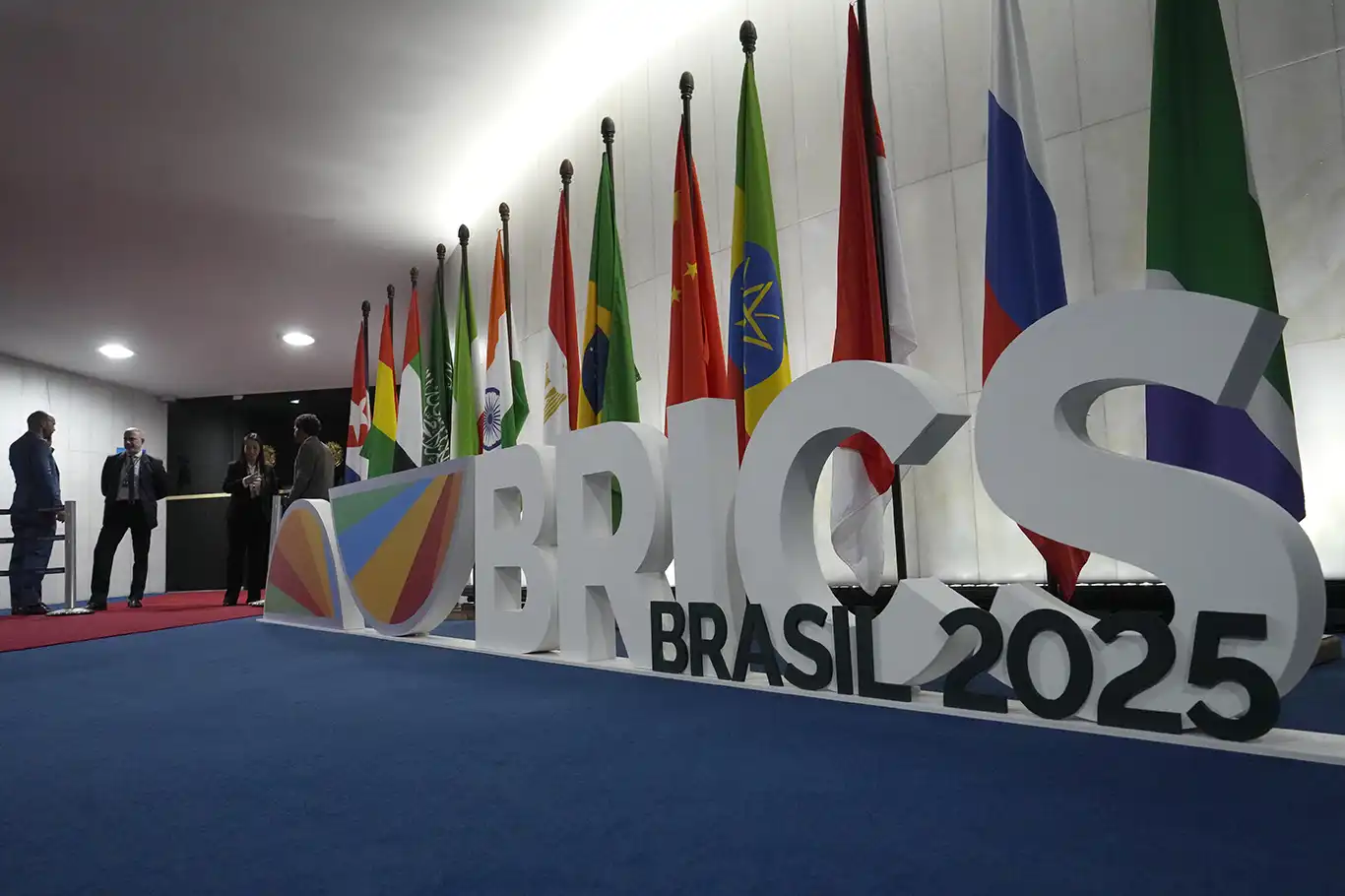BRICS condemns Israeli strikes on Iran, calls for ceasefire in Gaza


The BRICS group of emerging economies issued a strongly worded joint statement on Sunday condemning the recent Israeli military strikes on Iran, the ongoing occupation of Syrian and Palestinian territories, and the use of starvation as a method of warfare in Gaza.
The declaration came at the conclusion of the two-day BRICS Summit in Rio de Janeiro, where leaders addressed major geopolitical tensions and global economic disruptions.
BRICS Slams Israeli Strikes on Iran as Violation of International Law
In the joint communiqué, BRICS members unequivocally condemned the Israeli military attacks on Iran that began on June 13, 2025, declaring them a blatant breach of international law and the United Nations Charter.
"We condemn the military strikes against the Islamic Republic of Iran… and express grave concern over the subsequent escalation of the security situation in the Middle East,” the statement read.
The leaders also voiced alarm over attacks on civilian infrastructure and nuclear facilities under full safeguards of the International Atomic Energy Agency (IAEA), calling for the protection of civilians and the environment.
The conflict between Israel and Iran, which lasted until a U.S.-brokered ceasefire on June 24, resulted in devastating human loss. Iranian authorities reported 935 deaths and 5,332 injuries, while retaliatory Iranian strikes killed 29 and injured more than 3,400, according to Israeli sources.
BRICS urged the UN Security Council to address the situation and called for renewed diplomatic efforts to reduce regional tensions.
Syria: Terrorist Attacks, Israeli Occupation, and Economic Relief
The BRICS bloc also turned its attention to the deteriorating situation in Syria. The statement condemned ongoing terrorist attacks by groups such as ISIS and Al-Qaeda, specifically referencing the bombing of the Mar Elias Greek Orthodox Church in Damascus, which killed 25 civilians.
The statement denounced Israel’s continued occupation of Syrian territory as a "blatant violation" of international law and UN agreements, particularly the 1974 disengagement accord, urging Tel Aviv to withdraw immediately.
In a nod to recent developments in Syria, BRICS welcomed the lifting of some unilateral sanctions against Damascus and expressed hope that such steps would contribute to economic recovery and national reconstruction efforts. This comes after the December 2024 departure of former Syrian President Bashar al-Assad to Russia and the January 2025 declaration of Ahmad al-Sharaa as Syria's transitional president following the Baath Party’s fall.
Gaza: BRICS Declares Full Support for Palestinian Statehood
In one of the most emphatic sections of the declaration, BRICS recognized Gaza as an “inseparable part of the Occupied Palestinian Territory” and stressed the need for the unification of the West Bank and Gaza under the Palestinian Authority.
The bloc expressed grave concern over the continuing Israeli military campaign in Gaza and the deliberate blocking of humanitarian aid, warning against the use of starvation as a weapon of war.
“We urge the parties to engage in good faith in further negotiations to achieve an immediate, permanent, and unconditional ceasefire… and the full withdrawal of Israeli forces from the Gaza Strip,” the statement read.
BRICS reaffirmed its commitment to the Palestinian people’s right to self-determination, calling for the release of hostages and detainees, uninterrupted humanitarian access, and full Palestinian involvement in rebuilding efforts. The leaders also rejected any attempts at demographic manipulation or forced displacement of Palestinians.
The statement backed full UN membership for the State of Palestine and reiterated support for a two-state solution based on 1967 borders. According to the latest figures, Israel’s war on Gaza has killed over 57,400 Palestinians—most of them women and children—since it began in October 2023.
Economic Concerns: BRICS Decries Unilateral Tariffs
Turning to global economic matters, the BRICS leaders raised alarm over rising protectionism and unilateral trade restrictions, singling out tariff measures that undermine global commerce.
“We voice serious concerns about the rise of unilateral tariff and non-tariff measures, which distort trade and are inconsistent with WTO rules,” the declaration stated.
The bloc reaffirmed its commitment to a multilateral, rules-based trading system under the auspices of the World Trade Organization (WTO), criticizing recent protectionist moves—widely seen as a rebuke of U.S. President Donald Trump’s escalating tariff policies.
With a July 9 deadline looming for several nations negotiating trade concessions with Washington, the BRICS leaders cautioned that such actions could destabilize global supply chains and bring the multilateral trade order to a crossroads.
A Call for Multipolar Diplomacy
Throughout the summit, BRICS leaders emphasized the importance of diplomacy, international law, and multipolar governance in addressing the world’s most pressing crises. With a collective population exceeding 3.2 billion and growing influence in global affairs, the bloc continues to present itself as a counterweight to Western hegemony and interventionism. (ILKHA)
LEGAL WARNING: All rights of the published news, photos and videos are reserved by İlke Haber Ajansı Basın Yayın San. Trade A.Ş. Under no circumstances can all or part of the news, photos and videos be used without a written contract or subscription.
The U.S. President Donald Trump has indicated a potential shift in U.S. military support for Ukraine, suggesting a willingness to resume shipments of Patriot missile systems in response to growing concerns over civilian casualties in the ongoing war.
Leaders of the expanded BRICS bloc gathered in Rio de Janeiro on Sunday for a pivotal two-day summit, as the group of emerging economies faces mounting global challenges, from escalating Middle East conflicts to renewed trade tensions with the United States under President Donald Trump.
French President Emmanuel Macron is set to begin a landmark three-day state visit to the United Kingdom on Tuesday.